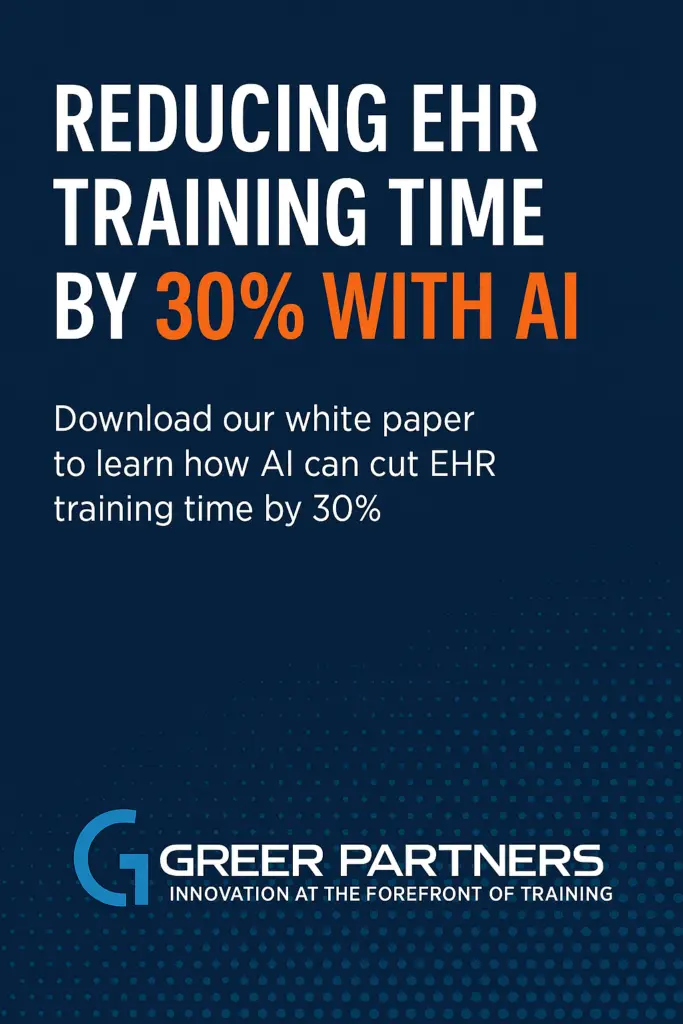
Executive Summary
This whitepaper presents results from a 12-month pilot program conducted in partnership with a large regional hospital system to evaluate the impact of Greer AI Co-Pilot on electronic health record (EHR) training efficiency, onboarding performance, and workforce enablement. As EHR platforms continue to evolve and become more complex, healthcare organizations face mounting pressure to reduce onboarding time while improving staff confidence and compliance.
During this program, Greer AI Co-Pilot was deployed as a digital training assistant for both new nursing hires and experienced clinical staff undergoing system upgrades. Through AI-driven scenario-based simulations, interactive feedback, and real-time performance tracking, the Co-Pilot provided adaptive learning tailored to each user’s pace and proficiency level. This resulted in significant time and cost savings: average training hours were reduced by 30%, staff satisfaction rose 23 percentage points, and onboarding-related IT support requests decreased by 60%.
Additionally, organizations observed a notable acceleration in time-to-productivity. New hires reached proficiency 7.2 days faster on average compared to those trained via traditional classroom-based methods. Staff reported greater confidence in navigating EHR tasks, and managers noted a reduction in documentation errors and helpdesk escalations.
This paper details the methodology, outcome metrics, and practical implications of AI-enhanced onboarding. It also outlines how healthcare leaders can extend these efficiencies to other regulated workflows, including HIPAA compliance, billing, and patient scheduling. Greer AI Co-Pilot represents a scalable, intelligent training model that aligns with the operational and regulatory demands of modern healthcare systems.
